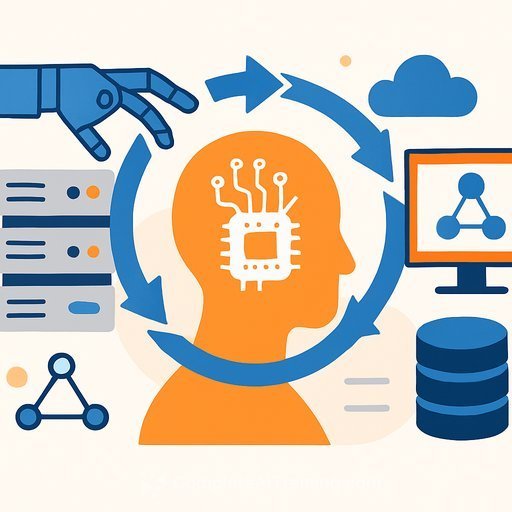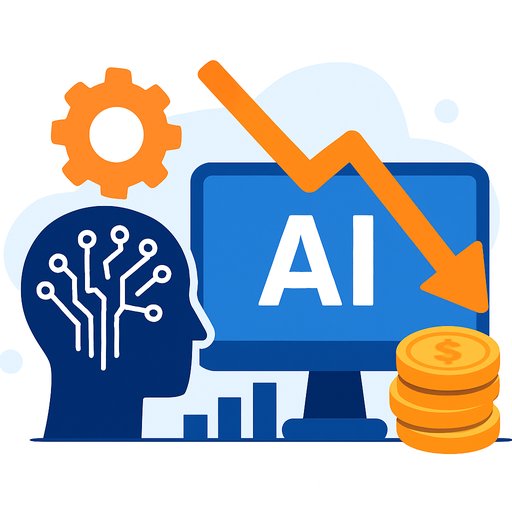SolarWinds Introduces AI Agents to Streamline IT Operations and Cut Time-to-Resolution
SolarWinds is bringing new AI Agent capabilities and expanded AI features to its observability and IT management platform to help enterprises run operations with fewer manual steps and faster outcomes. Announced October 8, the SolarWinds AI Agent aims to give IT teams live insights into system operations, incident response, and service management through natural language.
The AI Agent automatically drafts outage summaries, performs incident diagnostics, surfaces likely causes, and suggests fixes. It's available now in tech preview inside SolarWinds Observability and is planned for broader availability across the portfolio in 2026.
What You Can Use Today
- SolarWinds AI Agent (tech preview): Conversational troubleshooting with real-time context. Generates concise incident summaries, diagnostics, probable cause lists, and recommended actions.
- Root Cause Assist: Shortens troubleshooting by correlating signals and narrowing investigation paths.
- Dynamic Threshold Enhancements: Reduces noise and false positives with smarter, adaptive alerting.
- AI Query Assist (tech preview): Improves database performance through guided query tuning.
What's on the 2026 Roadmap
- Broader AI Agent availability across the SolarWinds portfolio.
- AI Incident Correlation for Service Desk: Links related incidents to speed root cause discovery.
- AI Knowledge Base Generation for Service Desk: Uses generative AI to create helpful, reusable articles.
- Automated Runbook Execution: Delivers predefined SOP steps for response and diagnostics.
Why It Matters for Leaders
IT environments are distributed and fragile, and teams are stretched thin. SolarWinds leaders note a need for systems that predict issues, automate responses, and reduce workload so staff can focus on higher-impact work.
Analyst Perspective
"AI is the future of nearly all security and resilience-related products and capabilities," said Jack Gold of J. Gold Associates. He added that automating observability is now essential as incidents increase and teams work to reduce false positives and operational overload.
Paul Nashawaty of theCUBE Research said SolarWinds is embedding agentic AI into core IT operations to automate diagnostics, remediation, and observability management. His research indicates nearly half of IT leaders still report unexpected outages, while 90% are adopting AI agents and 79% expect full-scale adoption within three years. He also warned that 45% of organizations are likely to face a software supply chain attack by 2026, making proactive, AI-led defense a leadership priority. The edge will come from execution-automation paired with governance, transparency, and trust.
Expected Impact on KPIs
- Faster MTTR: Automated summaries, likely causes, and fix suggestions reduce triage time.
- Better signal-to-noise: Adaptive thresholds cut alert fatigue and false positives.
- Higher service quality: Incident correlation and dynamic KB generation improve consistency.
- Lean operations: Teams cover more incidents without scaling headcount at the same rate.
Governance, Security, and Trust
The additions are built on "AI by Design" principles and extend the company's Secure by Design framework, a useful lens for leaders who want safe rollout with clear guardrails. Learn more about the approach at SolarWinds Secure by Design.
Next Steps for Management Teams
- Stand up a pilot: Trial the AI Agent in SolarWinds Observability with a defined use case (e.g., API latency incidents or DB performance) and clear success metrics.
- Update playbooks: Incorporate AI-driven summaries, fix suggestions, and automated runbooks into incident response policies.
- Set guardrails: Define data access, change approval flows, and audit logging for AI-assisted actions.
- Enable the team: Provide short training for SRE, NOC, and service desk staff on prompts, review steps, and escalation paths.
- Align on roadmap: Plan budgets and staffing around features landing in 2026 (incident correlation, KB generation, automated execution).
- Measure impact: Track MTTR, false positive rate, engineer time saved, KB reuse, and customer satisfaction.
If you're evaluating the tech preview, start here: SolarWinds Observability.
Upskilling managers and IT teams on AI agents and automation? See curated learning paths: Complete AI Training - Courses by Job.
Your membership also unlocks:






